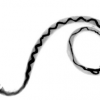New blood test identifies heart-transplant rejection earlier than biopsy can
Stanford University researchers have devised a noninvasive way to detect heart-transplant rejection weeks or months earlier than previously possible. The test, which relies on the detection of increasing amounts of the donor's DNA in the blood of the recipient, does not require the removal of any heart tissue.
"This test appears to be safer, cheaper and more accurate than a heart biopsy, which is the current gold standard to detect and monitor heart-transplant rejection," said Stephen Quake, PhD, professor of bioengineering and of applied physics. "We believe it's likely to be very useful in the clinic."
Quake, the Lee Otterson Professor in the School of Engineering and a Howard Hughes Medical Institute investigator, is a senior author of the study, which will be published June 18 in Science Translational Medicine. Kiran Khush, MD, assistant professor of medicine, is the other senior author. Postdoctoral scholar Iwijn De Vlaminck, PhD, is the lead author.










































































